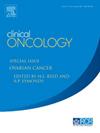在英国,单手神经肿瘤学家和小型中心面临的挑战:一项基于访谈的调查和提出的解决方案
IF 3
3区 医学
Q2 ONCOLOGY
引用次数: 0
摘要
目的单枪匹马的肿瘤学实践发生在一个科室只有一名临床医生负责特定肿瘤部位时。没有量化的证据证明单枪匹马的实践经验或其对肿瘤学的影响。由Tessa Jowell脑癌研究中心支持的一个团队采访了英国的35位神经肿瘤学家,以更好地了解与大型中心的神经肿瘤学家相比,单手神经肿瘤学家的工作量、挑战和支持网络。方法与方法半结构化虚拟访谈:2024年1 - 5月完成。结果58名神经肿瘤学家中有35人接受了面试邀请。中心被分类为:有一名神经肿瘤学家(单手):7次访谈;两名神经肿瘤学家(双手):14次访谈;三个或更多的神经肿瘤学家(多手):14次访谈。在研究期间,有129名神经肿瘤学家在29个多学科团队(MDT)网络中的52个中心工作。大多数神经肿瘤学家研究的肿瘤部位不止一个。单枪匹马的神经肿瘤学家描述了包括获得同行评审和请假在内的挑战。过去或现在都是单枪匹马的神经肿瘤学家中,有七成报告说这对他们的健康有负面影响。答复者描述了在地理上获得多学科服务的不平等,在较小的中心获得神经心理学和神经学服务更加困难。在单手或双手中心开展的临床试验的平均数量少于一项,而在多手中心开展的临床试验为五项。但是,在地方、区域和国家各级都有出色的协作和支持网络和倡议。结论单枪匹马的神经肿瘤学实践可能会影响健康,招聘和保留。国家研究计划应该考虑增加对单手和双手中心的支持和增加获得研究的途径。本文章由计算机程序翻译,如有差异,请以英文原文为准。
Challenges Facing Single-Handed Neuro-Oncologists and Smaller Centres in the UK: An Interview-Based Investigation with Proposed Solutions
Aims
Single-handed oncology practice occurs when only one clinician covers a particular tumour site in a department. There is no quantified evidence about experiences of single-handed practice or its impact in oncology. A team supported by the Tessa Jowell Brain Cancer Mission interviewed 35 neuro-oncologists in the United Kingdom (UK) to better understand the workload, challenges and support networks of single-handed neuro-oncologists compared with those of neuro-oncologists at larger centres.
Methods and Methods
Semi-structured virtual interviews were completed: January to May 2024.
Results
Thirty-five of 58 neuro-oncologists accepted an invitation to interview. Centres were categorised as those with one neuro-oncologist (single-handed): 7 interviews; two neuro-oncologists (dual-handed): 14 interviews; three or more neuro-oncologists (multihanded): 14 interviews. At the time of the study, there were 129 neuro-oncologists working at 52 centres within 29 multidisciplinary team (MDT) networks. Most neuro-oncologists covered more than one tumour site. Single-handed neuro-oncologists described challenges including access to peer review and cover for leave. Seven of ten neuro-oncologists who had been or currently were single-handed reported a negative impact on wellbeing. Respondents described inequity of access to multidisciplinary services geographically, with neuropsychology and neurology access more difficult in smaller centres. The mean number of clinical trials open at single-handed or dual-handed centres was less than one, compared with five at multi-handed centres. However, excellent collaborative and supportive networks and initiatives at a local, regional, and national level were described.
Conclusion
Single-handed neuro-oncology practice may impact wellbeing, recruitment and retention. National research initiatives should consider ways to increase support for, and increase access to research in, single- and dual-handed centres.
求助全文
通过发布文献求助,成功后即可免费获取论文全文。
去求助
来源期刊

Clinical oncology
医学-肿瘤学
CiteScore
5.20
自引率
8.80%
发文量
332
审稿时长
40 days
期刊介绍:
Clinical Oncology is an International cancer journal covering all aspects of the clinical management of cancer patients, reflecting a multidisciplinary approach to therapy. Papers, editorials and reviews are published on all types of malignant disease embracing, pathology, diagnosis and treatment, including radiotherapy, chemotherapy, surgery, combined modality treatment and palliative care. Research and review papers covering epidemiology, radiobiology, radiation physics, tumour biology, and immunology are also published, together with letters to the editor, case reports and book reviews.
 求助内容:
求助内容: 应助结果提醒方式:
应助结果提醒方式:


